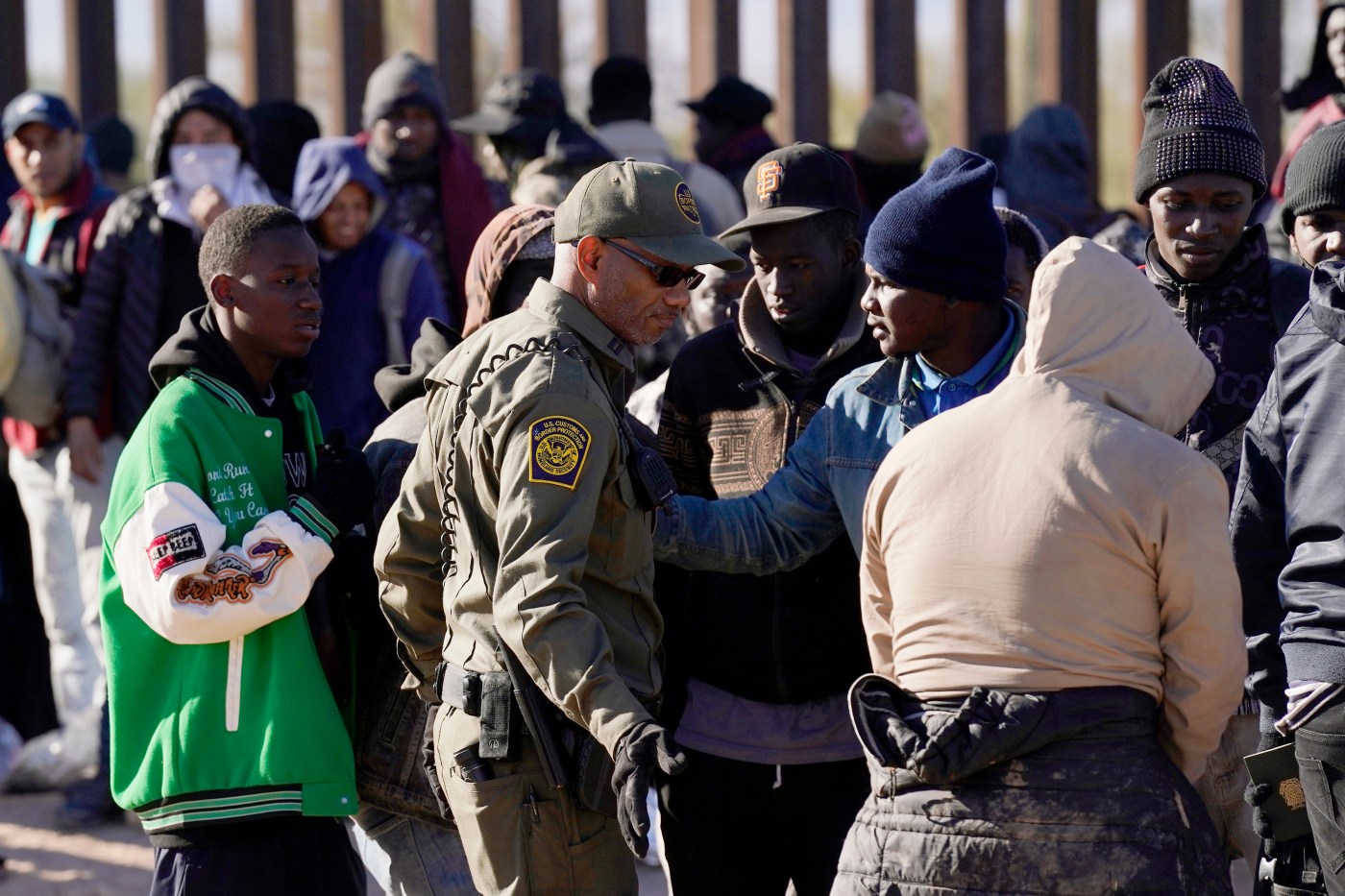
Deal on border at center of war aid talks
WASHINGTON — President Joe Biden is taking a more active role in Senate negotiations over changes to the immigration system that Republicans are demanding in exchange for providing money to Ukraine in its fight against Russia and Israel for the war with Hamas.
The Democratic president has said he is willing to make “significant compromises on the border” as Republicans block the wartime aid in Congress. The White House is expected to get more involved in talks this week as the impasse over changes to border policy has deepened and the funds remaining for Ukraine have dwindled.
“It’s time to cut a deal that both sides can agree to,” Biden’s budget director, Shalanda Young, said Sunday on CBS’ “Face the Nation.”
Republicans say the record numbers of migrants crossing the southern border pose a security threat because authorities cannot adequately screen all the migrants and that those who enter the United States are straining the country’s resources. GOP lawmakers also say they cannot justify to their constituents sending billions of dollars to other countries, even in a time of war, while failing to address the border at home.
Republican Sen. James Lankford of Oklahoma, who is leading the negotiations, pointed to the surge of people entering the U.S. from Mexico and said “it is literally spiraling out of control.”
“All we’re trying to do is to say what tools are needed to be able to get this back in control, so we don’t have the chaos on our southern border,” Lankford said on CBS.
But many immigration advocates, including some Democrats, say some of the changes being proposed would gut protections for people who desperately need help and would not really ease the chaos.
Connecticut Sen. Chris Murphy, the top Democratic bargainer, said the White House would take a more active role in the talks. But he also panned Republican policy demands so far as “unreasonable.”
“We don’t want to shut off the United States of America to people who are coming here to be rescued from dangerous, miserable circumstances, in which their life is in jeopardy. The best of America is that you can come here to be rescued from terror and torture,” Murphy said on NBC’s “Meet the Press.”
Much of the negotiating is taking place in private, but some of the issues under discussion are known: asylum standards, humanitarian parole and fast-track deportation authority, among others.
The House Freedom Caucus last week called for “significant and verifiable improvement” in U.S. border security as a condition for aid to Ukraine, saying it would use “all available leverage” to change the status quo. Several GOP lawmakers said Thursday there’s no chance of passing Ukraine aid this year.
A shift in smuggling routes has brought an influx of migrants here from countries as diverse as Senegal, Bangladesh and China.
Chris Clem, a retired Yuma, Arizona, sector chief, said it is part of smugglers’ strategy to stretch agents as thinly as possible, forcing highway checkpoints to close and other resources to be diverted for processing migrants. The remoteness creates “enormous strain” on the Border Patrol, he said.
Art Del Cueto, a Tucson-based vice president with the National Border Patrol Council, said the union wants stricter measures to deter migrants from coming. He said it’s not so much a matter of too few agents, but one of too many migrants.

